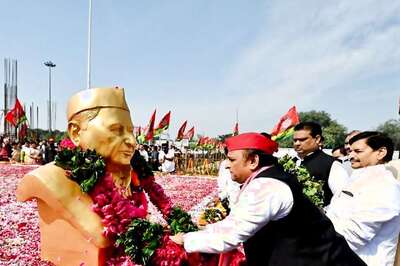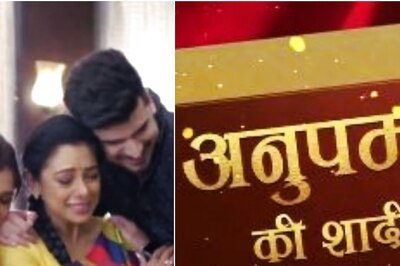
views
Peshawar: Afzal Kohistani, a man at the centre of a campaign to expose one of Pakistan's most notorious "honour killings" cases has been shot dead in the garrison city of Abbottabad, media reports said on Thursday.
In 2012, Kohistani emerged as one of the first Pakistanis to violate a local custom in remote northern Kohistan district where matters of family honour are settled in blood. Those perceived to have violated the code are killed with the mutual consent of families involved.
Afzal was shot dead on Wednesday night in a busy commercial area of the north-western city of Abbottabad, police said, quoting witnesses to the killing. He suffered multiple injuries and died on the spot, they said.
He was shot by unidentified gunmen who managed to flee.
According to Station House Officer Ghafoor, of the Cantt police station, Afzal was accompanied by his nephew at the time of the incident. The nephew shot back at the gunmen and remained unhurt.
Afzal's death comes amid a blood feud that has also seen three of his other brothers killed in 2013, Dawn news reported.
About 1,000 "honour-killings" of women by relatives are recorded each year in Pakistan, say human rights activists.
According to the custom, the male family members of a woman suspected of an out-of-wedlock liaison should first kill the woman, and then go after the man. The family of the man would not oppose this action.
The Kohistan video scandal made headlines in 2012 when eight boys and girls were killed by members of their tribe after a mobile phone video of them at a wedding in a remote village in Kohistan emerged on social media.
The video showed five females singing and clapping along as the male family members danced. The mixed gathering had taken place in a village located in an extremely conservative part of Khyber Pakhtunkhwa. In the eyes of the local people, the youngsters had violated tribal norms and brought dishonour upon them.
After the video was leaked, a jirga was held by the girls' tribe which decreed the killing of the boys and girls under 'riwaj' (a tribal custom).




















Comments
0 comment